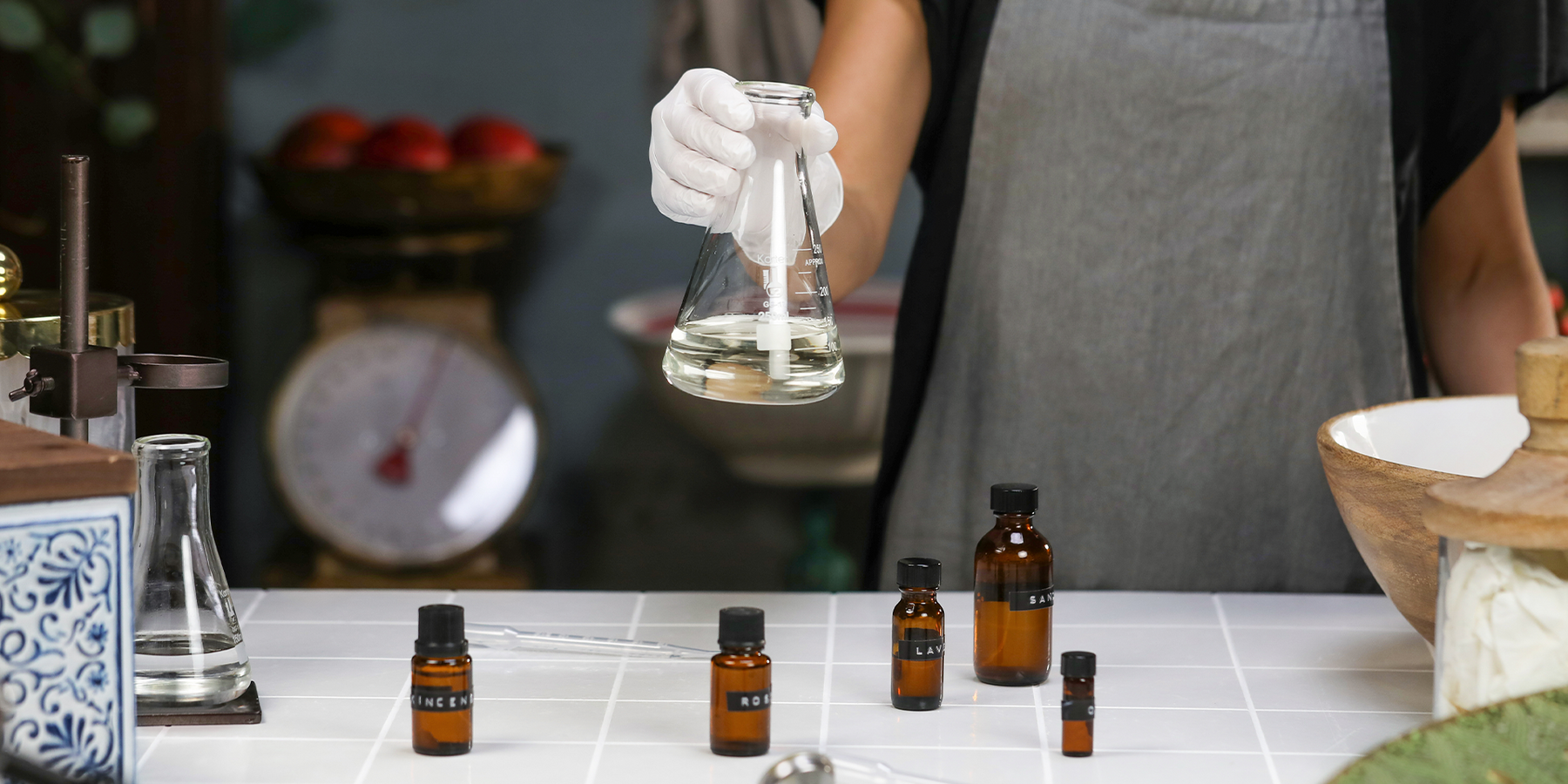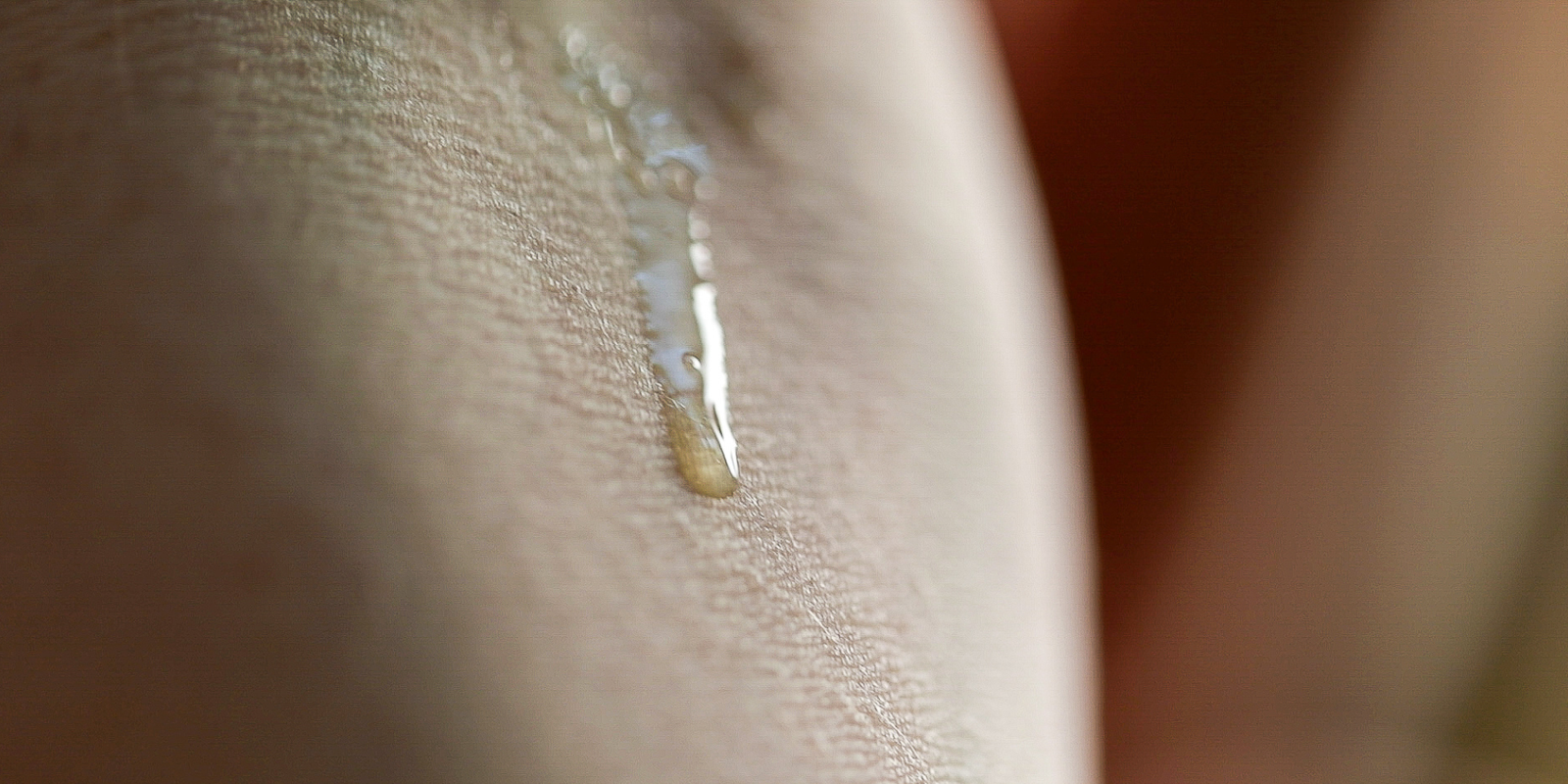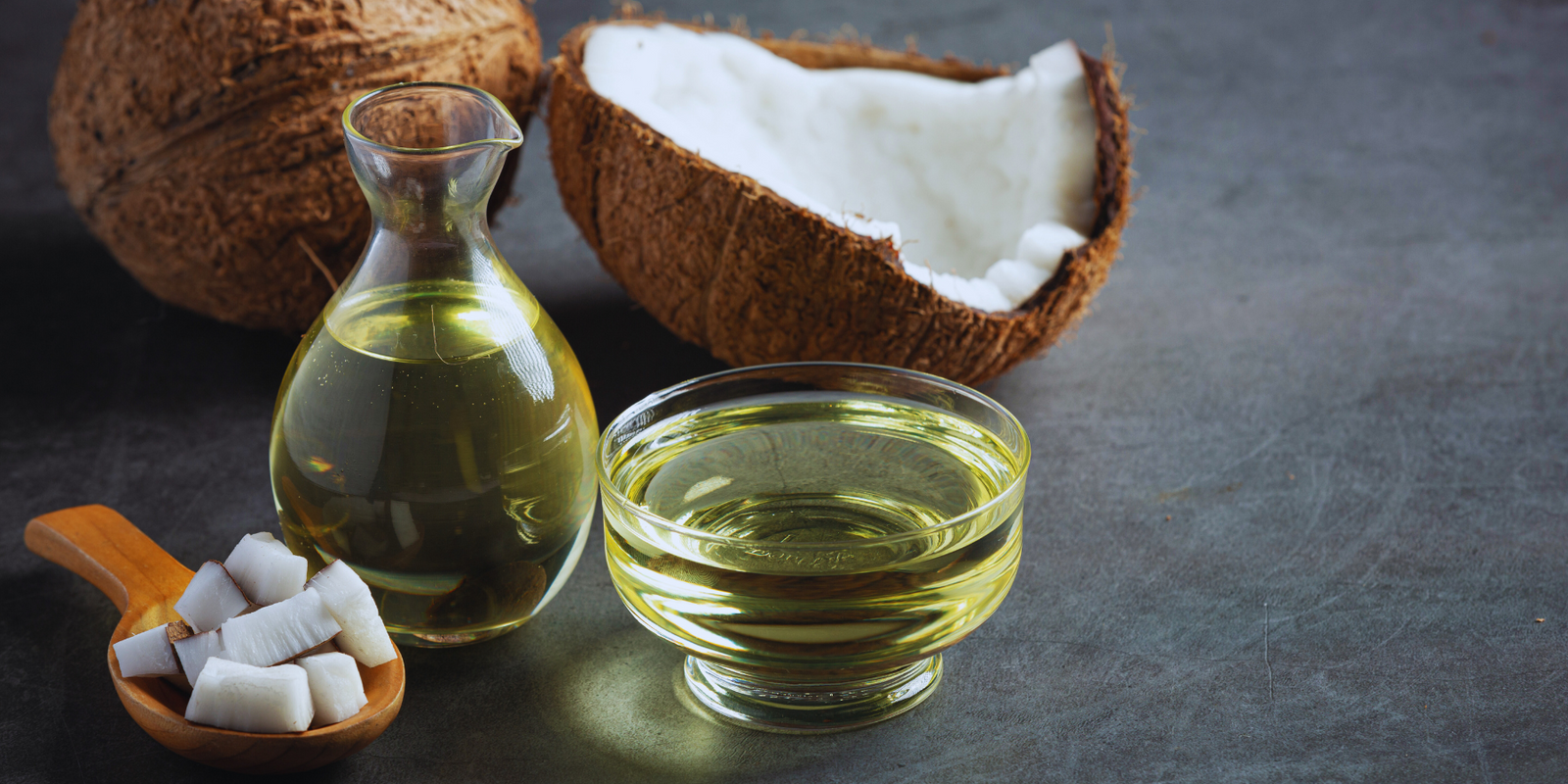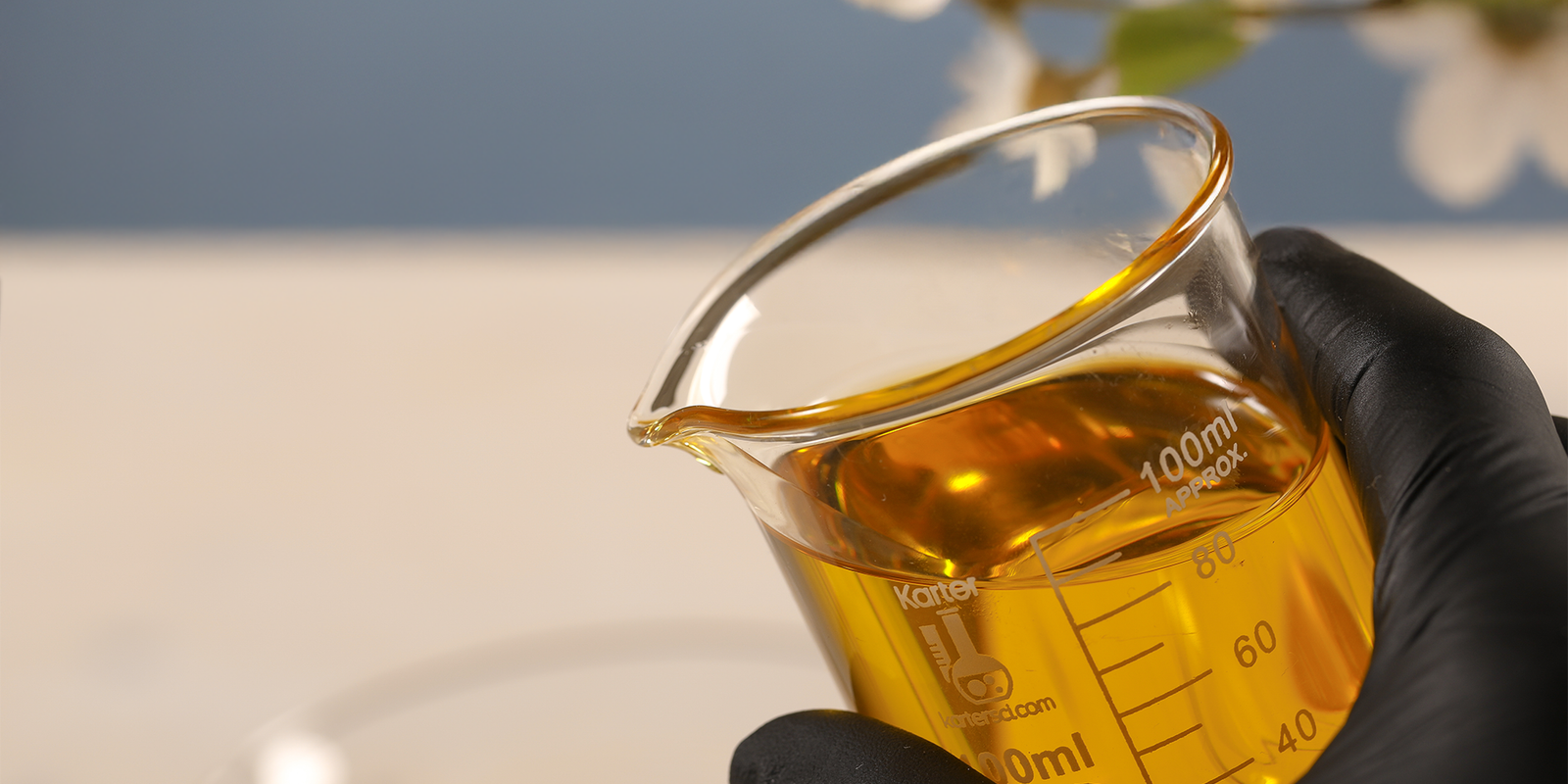Exclusive gift on orders $200+
Exclusive gift on orders $200+
Should You Avoid Chemicals In Your Skincare Products?

Should You Avoid Chemicals In Your Skincare Products?
Introduction.
Chemicals are an extremely hot topic in skincare these days. I see so much discourse online around the word ‘chemical,’ and people have very strong opinions about it. Many people claim to seek out or only use chemical-free products, and many brands advertise their products as superior because they are chemical-free. The fact of the matter is that it is literally impossible for any skincare product to be chemical-free! In this post, I’ll explain why that is and what you should be looking for on your skincare ingredient labels.
What is a chemical?
A chemical is a substance consisting of matter with a defined composition. Simply put, chemicals are the building blocks of matter and can be found in various forms, including solids, liquids, and gases. They are composed of atoms, the fundamental units of chemical elements, and consist of three subatomic particles: protons, neutrons, and electrons.
Chemicals can be either natural or synthetic. Natural chemicals are naturally occurring and can be found in plants, minerals, and other organic sources. Some examples include water, oxygen, caffeine, vitamin C, and essential oils. Synthetic chemicals, on the other hand, are those created in a laboratory. These can include pharmaceuticals, plastics, detergents, and countless other substances.
The difference between natural and synthetic ingredients.
Natural ingredients are obtained through extraction, distillation, or fermentation processes that preserve the integrity of the natural source. As a result, natural ingredients often contain a multitude of natural chemical compounds. For example, an essential oil may contain polyphenols, terpenes, flavonoids, and alkaloids.
Synthetic ingredients are created through chemical reactions or industrial processes and are often isolated to create a single, specific chemical.
So overall, natural ingredients are sourced from nature and are composed of many different chemical compounds, while synthetic ingredients are lab-made and typically composed of a single chemical compound.
Synergistic effects of natural ingredients.
Each compound within a natural ingredient contributes to its overall biological activity. Plant oils, in particular, have complex natural compounds that give plants the ability to adapt to different environmental conditions and ecosystems. These compounds interact with each other in intricate ways, enhancing or modulating each other’s effects and working to provide protection, growth, and restorative properties to the plant.
When applied to a biological system such as the skin, the synergistic effects of these compounds target various pathways and mechanisms within the skin, leading to amplified effects, such as increased antioxidant activity, anti-inflammatory properties, or enhanced skin hydration and barrier repair. Essentially, the benefits that these compound groupings provide to the plant from which they are sourced are extended to your skin as well.
The limited scope of synthetic ingredients.
Since synthetic ingredients are created in labs, they are standardized to ensure uniformity in their potency and efficacy. As I mentioned, they are often isolated to create a single chemical entity. They are designed to target specific biological pathways or functions. While they can indeed be effective for their intended purpose, their singular nature may limit their ability to interact with the skin in the same complex and multi-faceted way that natural ingredients do.
So, which chemicals should you avoid in your skincare products?
As we have discussed, the term ‘chemical’ constitutes all skincare ingredients, natural or synthetic. While I personally believe that natural ingredients have a more beneficial and holistic effect on your skin, I do not believe all synthetic ingredients are bad for your skin, either.
However, certain chemical ingredients from both categories should be avoided in skincare due to their potential to cause irritation, inflammation, and disruption of the skin barrier.
Natural chemicals to avoid:
- Citrus oils. This includes orange, lemon, lime, grapefruit, and bergamot. Citrus oils contain chemical compounds called furanocoumarins that have a phototoxic effect on the skin. This means that when you apply them and expose your skin to sunlight, the compounds react to the UV light, causing hyperpigmentation, skin irritation, redness, inflammation, and, in some cases, blisters and burns. Citrus oils smell great and are wonderful for diffusing in the air, but they are best kept off your skin!
- Phenol-rich oils. Phenols are extremely stimulating plant compounds that can be very irritating to the skin at high levels. Examples are clove, cinnamon, thyme, and oregano oils.
Synthetic chemicals to avoid:
- Sodium lauryl sulfate/sodium laureth sulfate (SLS/SLES). These are commonly used in cleansing products and can be incredibly harsh and drying to the skin, stripping away natural oils and potentially causing irritation, especially for people with dry or sensitive skin.
- Fragrance. When you see the word ‘fragrance’ listed as a skin care product ingredient, this almost always refers to synthetic/artificial fragrance. This is an umbrella term for a large number of compounds that are added to a product for the sole purpose of creating a scent. There are thousands of these isolated compounds and they are known to be one of the most common causes of contact dermatitis. There is a big difference between synthetic fragrance and the scent of natural ingredients, and I recently wrote a blog post all about it that you can read here.
- Parabens. These are synthetic preservatives used to extend the shelf life of products. Recent research has indicated that they may act as endocrine disruptors, which can cause hormonal imbalances, which may, in turn, affect your skin.
- Propylene glycol. This compound is used as a humectant in skincare products. It is also commonly used as a coolant in various industrial processes and as an antifreeze for engines! It has been indicated as a skin sensitizer and irritant and was even named ‘allergen of the year’ by the American Contact Dermatitis Society in 2018.
Chemicals in Flora Mirabilis skincare products.
As an esthetician, I am very aware of the effects of irritants on people’s skin. When I formulated our Holy Grail Face Oil and our Fountain Of Youth Cleansing Clay, I made sure to only include natural ingredients whose chemical compounds have been proven safe for skin care and to only use them at the the proper dilution rate for skin care. For example, essential oils should only be used at 2% of a formulation in skincare products.
By following these guidelines, I was able to formulate our products to ensure their safety and efficacy. We have even had third-party testing done by a dermatologist to prove a hypoallergenic result!
Conclusion.
In conclusion, chemicals in skincare are impossible to avoid, as they are the building blocks of all ingredients. However, by prioritizing ingredient awareness, reading product labels diligently, and staying informed about potential risks and sensitivities, you can make better choices about the skincare products you choose to use, which leads to happier, healthier skin in the long run.
References.
https://pubmed.ncbi.nlm.nih.gov/16283906/
https://pubmed.ncbi.nlm.nih.gov/34030374/
https://pubmed.ncbi.nlm.nih.gov/29596967/
Also in Apotheca Edit

The Top 10 Best (And Worst) Oils to Use On Your Face
I get asked all the time about using oils like avocado, olive, and coconut on the face—and the truth may surprise you. Not every “natural” oil is good for your skin. In this post, I break down the best and worst oils to use, what their comedogenic ratings really mean, and how to choose the ones that will actually nourish your skin instead of clogging it.

The Truth About Coconut Oil in Skincare: Why I Never Use It on the Face
While coconut oil does have benefits for skin and hair, its fatty acid profile makes it a less-than-ideal choice for facial skincare. If your goal is clear, youthful, and radiant skin, there are far better options.

Are Seed Oils Bad For Your Skin?
When it comes to seed oils and your skin, it’s not about avoiding them- it’s about choosing wisely.
Subscribe
Sign up to get the latest on sales, new releases and more …
Reviews
See why 1000's have simplified their skincare with Flora Mirabilis.
